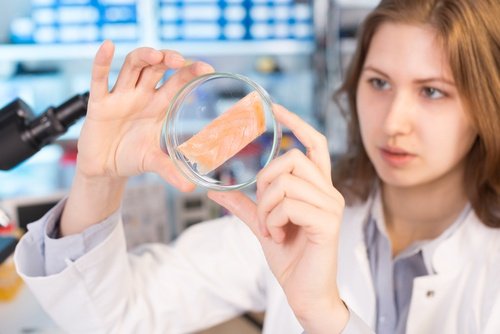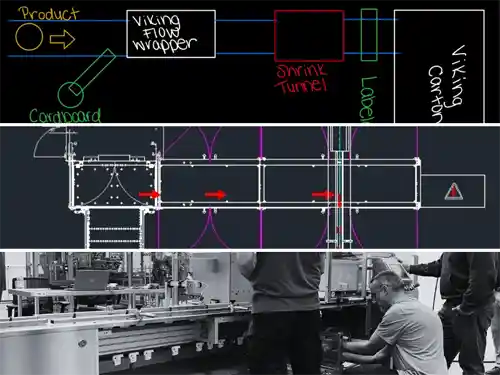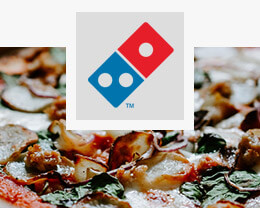FSMA Compliance Dates Are Here: What To Expect
 As of September 19, 2016, larger businesses must comply with certain new standards of the Food Safety Modernization Act (FSMA) set by the FDA. These new rules affect both human and animal food companies. The FSMA was drafted as a preventative and proactive measure to reduce risk and increase food and beverage manufacturer accountability when it comes to foodborne illness. The FDA reports that "48 million people (1 in 6 Americans) get sick, 128,000 are hospitalized, and 3,000 die each year from foodborne diseases, according to recent data from the Centers for Disease Control and Prevention." This issue is largely preventable, and the FSMA was drafted to officially establish and enforce prevention and accountability efforts.
As of September 19, 2016, larger businesses must comply with certain new standards of the Food Safety Modernization Act (FSMA) set by the FDA. These new rules affect both human and animal food companies. The FSMA was drafted as a preventative and proactive measure to reduce risk and increase food and beverage manufacturer accountability when it comes to foodborne illness. The FDA reports that "48 million people (1 in 6 Americans) get sick, 128,000 are hospitalized, and 3,000 die each year from foodborne diseases, according to recent data from the Centers for Disease Control and Prevention." This issue is largely preventable, and the FSMA was drafted to officially establish and enforce prevention and accountability efforts.
FSMA Requirements for Human Food
According to Joan Givens, co-chair of the FSMA Operations Team Steering Committee, a top priority for FDA is providing the framework for the food and beverage industry's implementation of preventative controls and Current Good Manufacturing Practices (CGMP) requirements. According to recent draft guidance by FDA, human food companies must:
- Identify possible biological, chemical and physical hazards in the plant environment
- Execute preventative controls to decrease possibility of food exposure to hazards
- Adequately and proactively monitor preventative controls
- Plan for and record any corrective actions
- Verify that preventative controls are consistently implemented and effective
- Formulate a recall plan
- Follow established Current Good Manufacturing Practices
- Ensure that employees are trained and qualified to perform their assigned duties in compliance with CGMPs
- Address allergen cross-contact as part of CGMPs
FDA's Givens reports that the best thing covered food facilities can do now is to take the measures required by the Food Safety Modernization Act rules. She explains:
" The best thing that people in the food industry can do is take the measures required by the new rules – not just the letter of the law but what it represents in terms of transforming the food safety system. They should look at the big picture, at areas in which they could be vulnerable and proactively take action. Promptly responding to problems, even if they aren’t yet violations, can prevent them from getting to the point at which there is a concern about the safety of the food.
Food Safety Modernization Act Requirements for Animal Food Companies
 According to recent draft guidance by FDA, Current Good Manufacturing Practices will be established for animal food manufacturing facilities. Not previously a requirement, CGMPs will be enforced in an effort to protect both animals and their caretakers. The FDA provisions would include specific requirements for:
According to recent draft guidance by FDA, Current Good Manufacturing Practices will be established for animal food manufacturing facilities. Not previously a requirement, CGMPs will be enforced in an effort to protect both animals and their caretakers. The FDA provisions would include specific requirements for:
- Personnel in animal food facilities such as following good hygiene practices, and protection of food from contamination from personal effects
- The plant and grounds including proper cleaning, maintenance, and elimination of pests
- Sanitary operations including maintaining clean and sanitary conditions of food contact surfaces, proper use and storage of toxic cleaning compounds, and exclusion of pests
- Sanitary facilities and controls such as the plant's water supply, plumbing, and toilet and hand-washing facilities
- Equipment and utensils including the cleaning and maintenance of such items and protecting animal food from contamination
- Processes and controls including following adequate sanitation principles, proper labeling of ingredients and finished animal food, ensuring the safety of raw materials, and prevention of contamination of animal food during processing
- Warehousing and distribution to protect animal food against contamination and deterioration.
Animal food manufacturers must also comply with the implementation of preventative controls which include hazard analysis, establishing preventative controls, monitoring procedures; and creating and adhering to corrective action procedures, verification procedures, and a recall plan.
How Can I Prepare for an FSMA Inquiry?
Givens' general guidance suggests that food and beverage manufacturers should not take the stance of "We were just inspected and passed, we are safe for X amount of time." Instead, always be ready for an inspection. This must be adopted as part of the company culture, and it is management's responsibility to ensure this happens.
 Documentation is a must when it comes to compliance for FSMA. Food and beverage manufacturers must keep records of events relating to new FSMA requirements. Companies should have processes and procedures in place with built in redundancies for recordkeeping, as these records will present verification that they are complying with requirements in the event of an inquiry.
Documentation is a must when it comes to compliance for FSMA. Food and beverage manufacturers must keep records of events relating to new FSMA requirements. Companies should have processes and procedures in place with built in redundancies for recordkeeping, as these records will present verification that they are complying with requirements in the event of an inquiry.
Givens of FDA provides examples of questions that state or federal investigators may ask when investigating an FSMA-related problem:
- When did this problem come to your attention?
- What did you do as a result?
- Were you proactive or reactive in looking for this problem to begin with?
- If you could not devise a solution, did you seek expert help?
- Did you educate your workforce so that problem is less likely to reoccur?
The more accurate, complete, and organized your records are, the easier it will be to comply with the investigation. Having processes and procedures in place for record keeping also ensures minimal business interruption as a result of an investigation.




